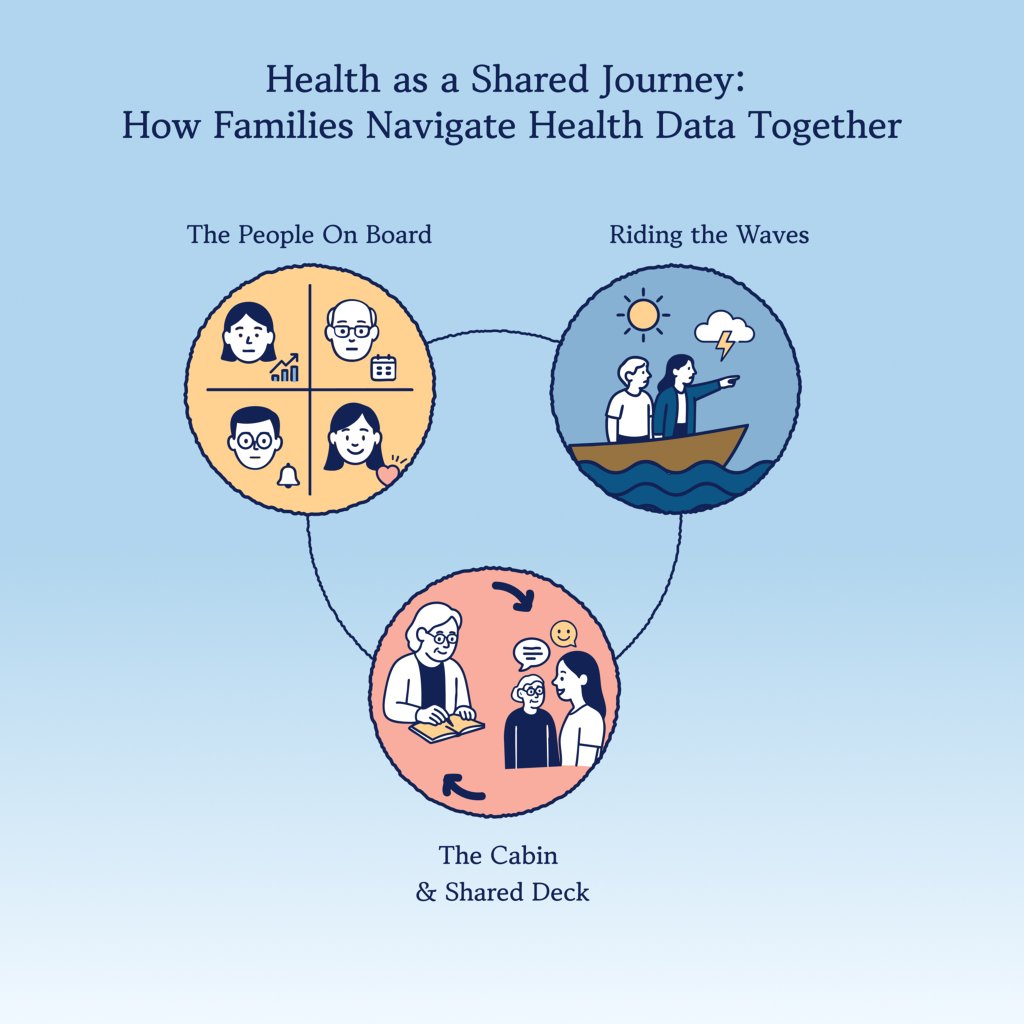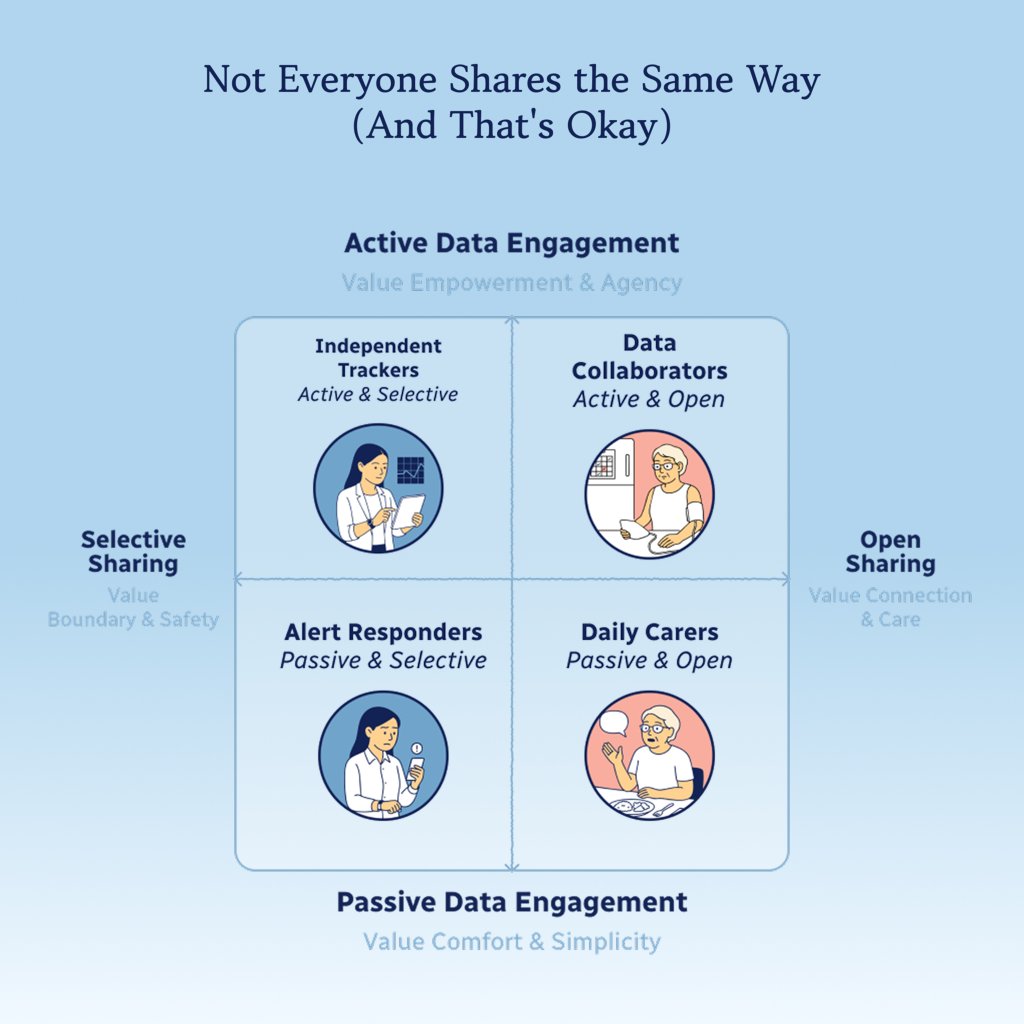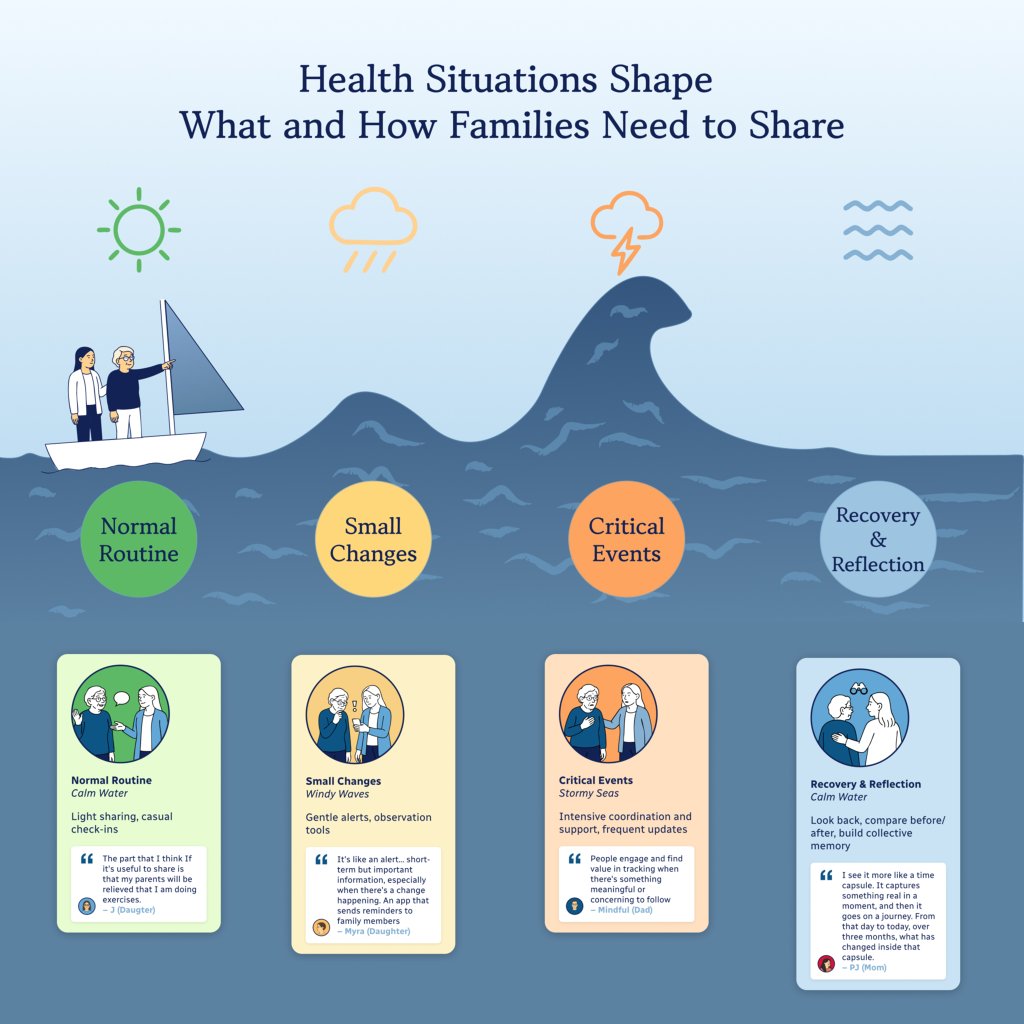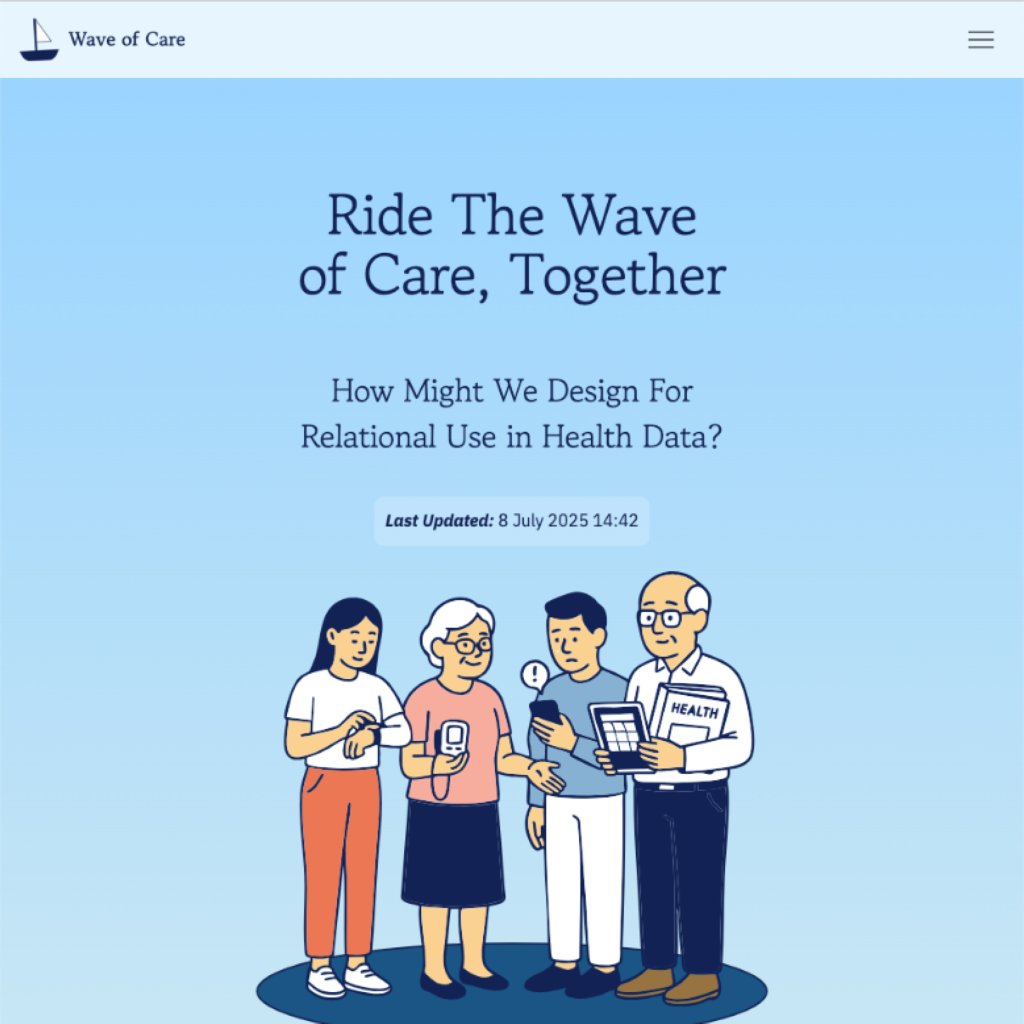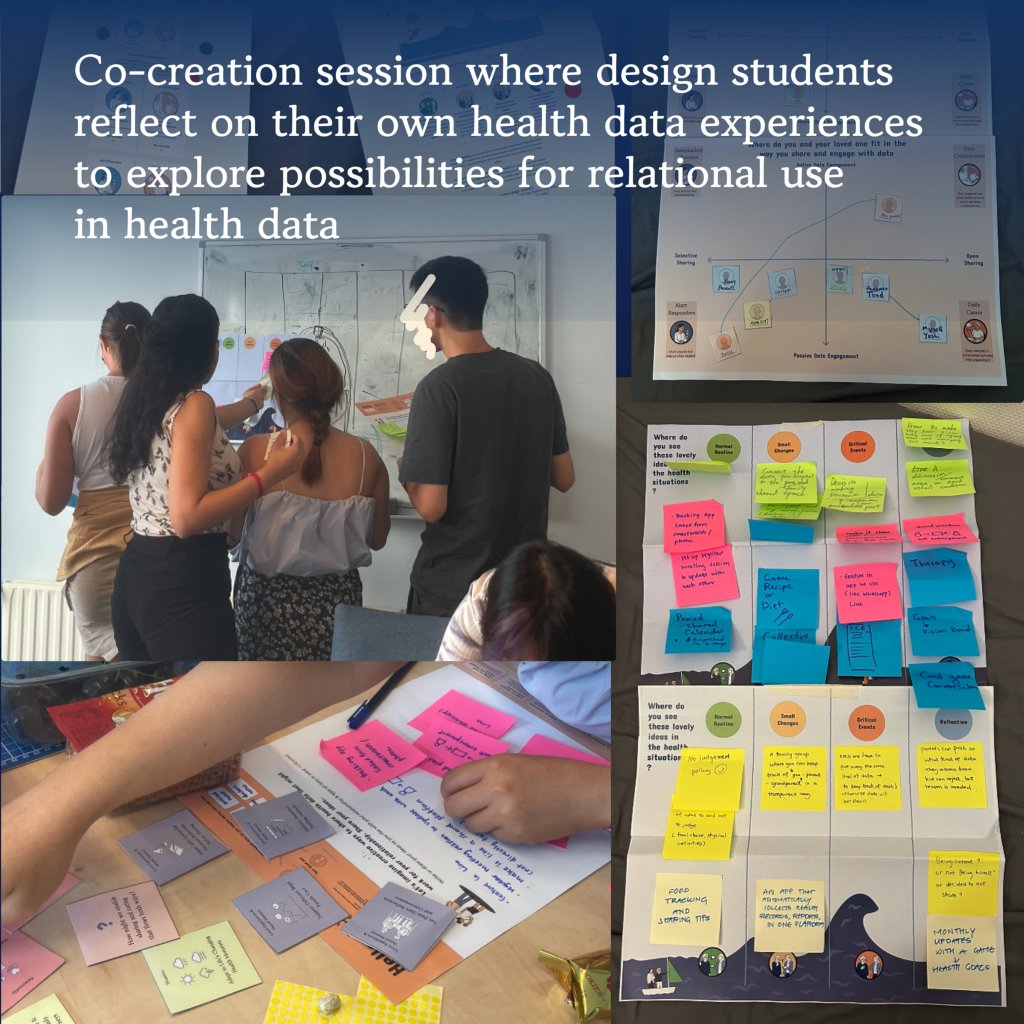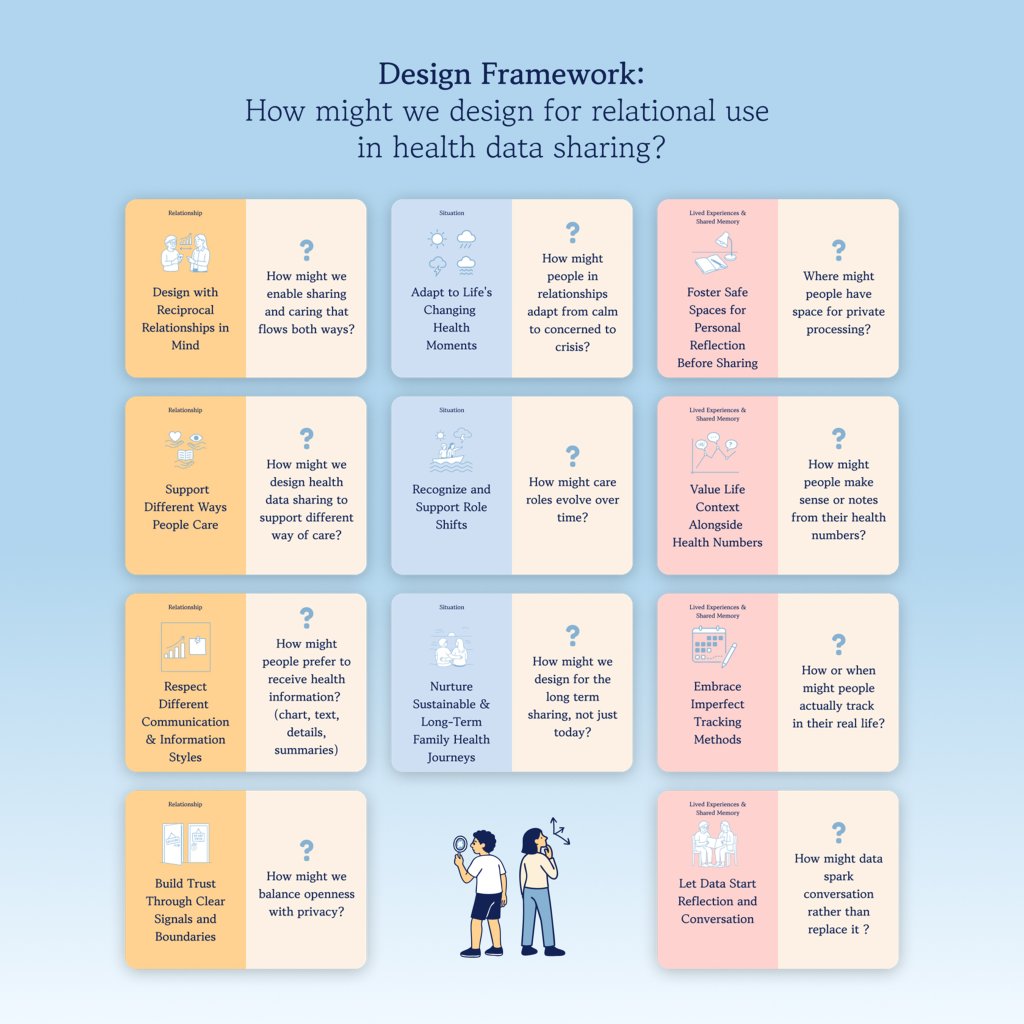In Thai culture, informal caregiving is embedded in everyday practices, yet there's a gap between collective care values and individual-centred health tools that we use. Health data sharing can be both relational and reciprocal, where families exchange health information, support each other's decisions, and build understanding together through health data sharing.
Our design problem centres on how families can share personal health data with trust and intention, allowing loved ones to understand and care for each other, something we call data intimacy. Yet current tools don't consider how families navigate trust, privacy, and care within existing relationships, creating a mismatch between how technology works and how families naturally want to support each other's wellbeing.
Health changes over time; shouldn't data sharing adapt too?
We used participatory design with four Thai parent-child pairs across two research cycles. Both family members contributed their own health data experiences through paired sessions. This reciprocal approach helped us observe family dynamics and negotiation patterns.
Three key perspectives emerged around a central insight: families navigate health like waves of care, from stable periods with casual check-ins, through small changes requiring gentle alerts, to critical events demanding intensive coordination together. We identified four sharing patterns: from Independent Trackers to Data Collaborators, that shift dynamically as situations change. Families need both personal safe spaces for private reflection and shared collective spaces for mutual understanding, built through trust and intentional sharing where families add their own context to health numbers.
These insights informed eleven design principles for "How might we design for relational use in health data?" organised around three pillars: designing with relationships, adapting to changing health situations, and honouring lived experiences behind numbers.
Wave of Care matters because more people are managing chronic conditions with family support, yet our health tools still act like we're solo health managers. While we studied Thai families specifically, when we tested our ideas with design students from different cultural backgrounds, they could recognise similar patterns in their own families. Our research gives designers frameworks they can use to imagine relational use in existing digital health tools. But there are limits: our study focused on manageable conditions like blood pressure rather than serious illnesses, and worked with families comfortable with technology and sharing. More work is needed to understand how these ideas work across different health situations and family cultures beyond Thais.
